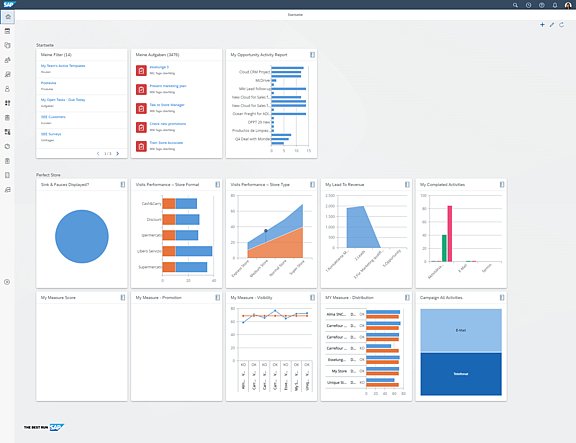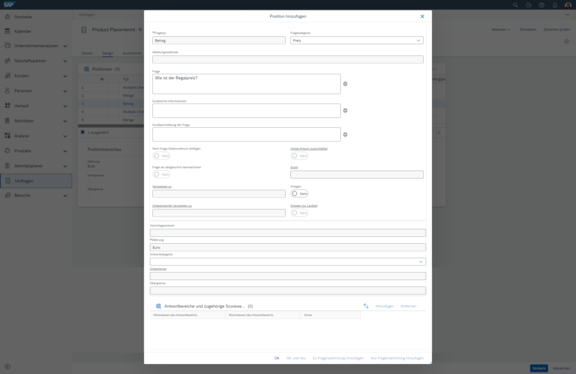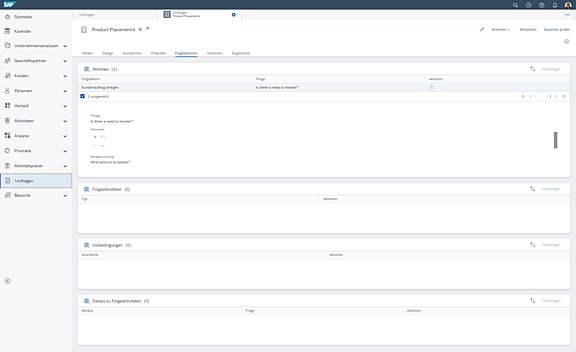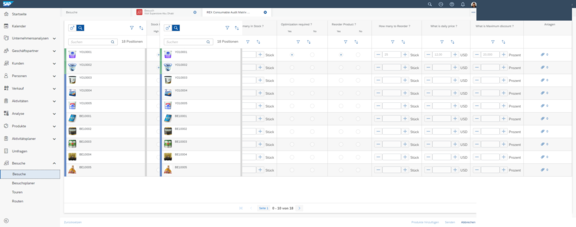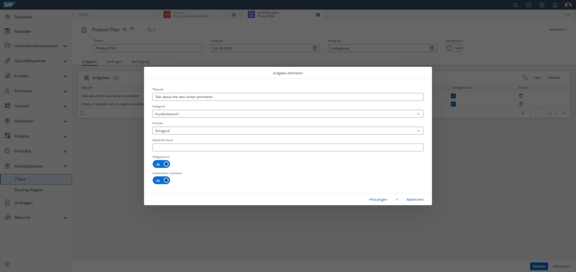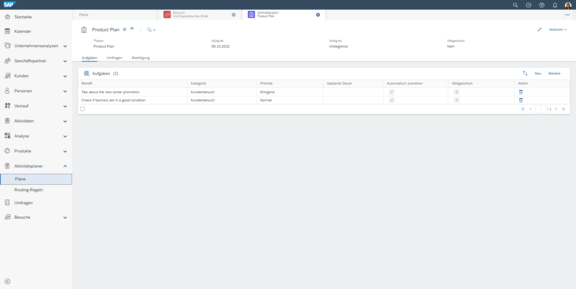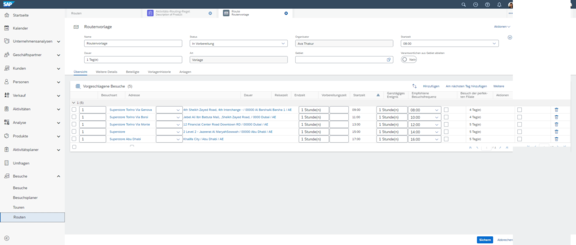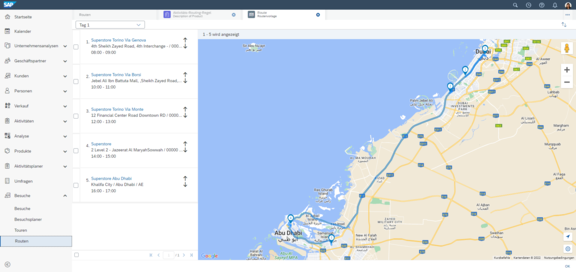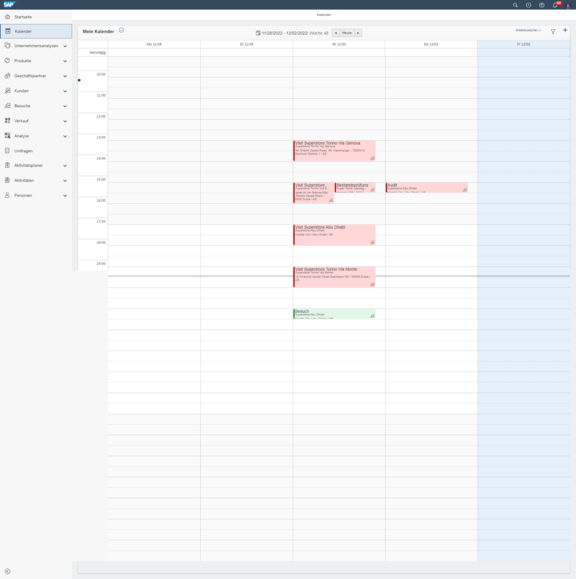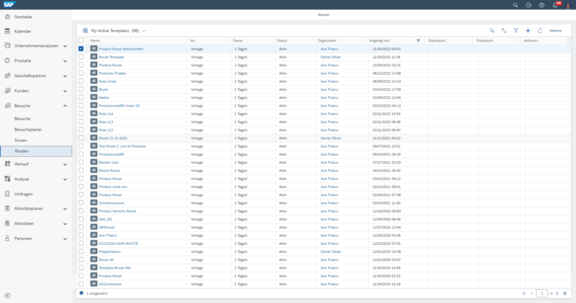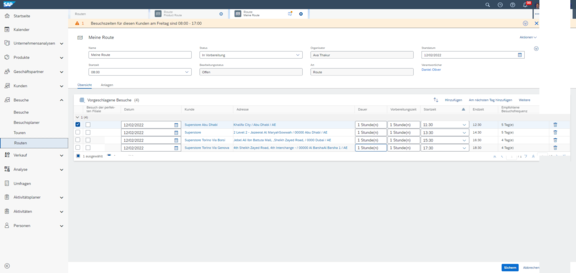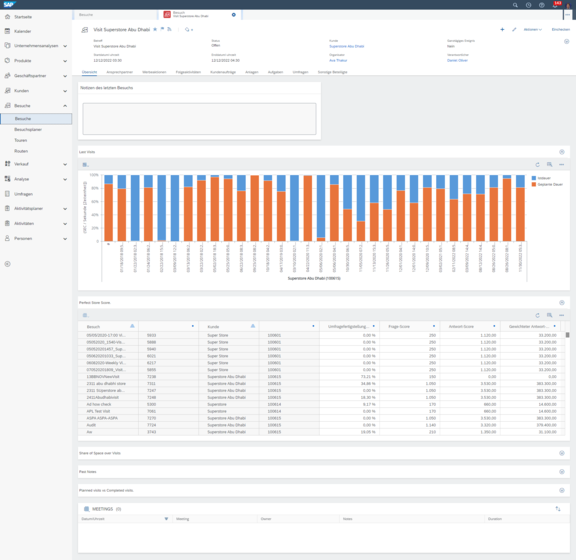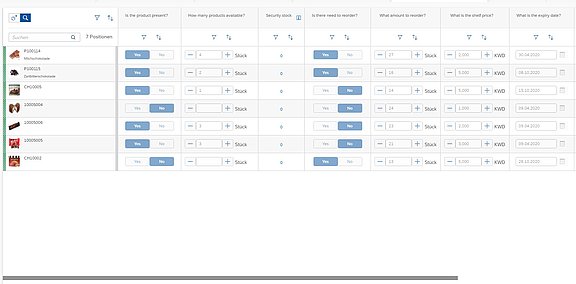In the Fast Moving Consumer Goods (FMCG) segment, the field sales force plays a special role: The placement of products must be controlled and optimised so that sales can be increased. Orders for direct and drop-ship business must be accepted.
Themes that we encounter again and again are:
- Route planning
- Visit preparation
- Visit execution
- Visit follow-up
In the following, we have looked at how these points can be implemented within the framework of an SAP solution. Of course, this is only to be understood as an example that can also be adapted to other roles or procedures.
For our example we have defined two roles:

Paula Plan works as a Key Account Manager in the Internal Sales Department
She coordinates campaigns, activities and prepares route plans for her own staff as well as for external service providers (agencies).
She is also responsible for the performance measurement of the individual measures and the corresponding evaluations.

Otto Outside is a sales representative or employee of an agency
He has mobile access to the application and has the data available online as well as offline via his tablet or mobile phone. He will carry out the predefined activity plans and carry out appropriate checks and surveys / polls at the customers' locations. For his tours in his sales area, he can orientate himself on the route suggestions from the Paula Plan head office, but ultimately plan his visits individually.
1. Planning through FMCG Key Account Management
Our Key Account Manager, Paula Plan, logs into the portal and sees all the important details on her dashboard, including the key figures for the so-called "Perfect Store".
Collection of information during the visits
Ms. Plan would like to plan the visits of the sales representatives today. During the visits, the positioning of the consumer goods assortment is to be checked, it is to be determined which competitive products are offered and prices are to be recorded.
Ms Plan uses the possibility to define questions and answer options in the system for this purpose:
Based on the responses, follow-up activities common in the consumer goods industry, such as a repeat order, can be triggered automatically. For this purpose, corresponding workflows can be created in the designer.
Ms. Plan checks the completed questionnaire for the field service, also the possibility for question-specific attachments is given (pictures might be necessary for documentation):
In addition to the information to be collected, Ms Plan gives the sales force another task. The market managers are to be approached about the upcoming Christmas campaign:
The entry sheet and task is then assigned to the appropriate markets to be visited. This can be controlled manually if required or conveniently via routing rules, which can be linked to a variety of conditions.
Route planning for FMCG field service
Before Ms Paul sends the field staff out on the road, she makes an initial route plan - which can be adjusted later. For this purpose, she creates a template which contains, among other things, visit sequences, visit days and ultimately also customer groups, areas or specific markets to be visited. You can assign this template to the sales representatives. No visits and routes are created from this yet - it serves here as a suggestion for later activities.
The result is displayed on a clear map:
2. Field service for FMCG
The FMCG agency or field sales representative Adrian Außen logs on to his mobile device and receives the upcoming plans for the next few days and relevant key figures on his dashboard:
Visit and route planning with SAP
In the calendar - synchronised with Outlook - he can see his upcoming visits.
Based on the template created by Ms Plan, the field staff can have a route created and make changes relevant to them, such as changing the start time or visit sequence.
The system also shows messages if the planning is not plausible:
Of course, Mr. Outside can still insert customer visits at his discretion, e.g. for overdue customers or markets..
Visit execution in the consumer goods industry
Once the planning has been completed, the visits to the markets are carried out. Here, too, the sales force always has all the necessary information about the respective market in view.
Mr. Außen answers the questions posed by Ms. Plan and carries out the assigned tasks. Orders can be received directly and e.g. processed seamlessly in SAP S4.
Conclusion: FMCG processes can be supported very well with SAP modules
The example described above shows that SAP in the consumer goods industry offers very good software support. We are happy to offer an individual demo or beraten, how their requirements can be implemented.
